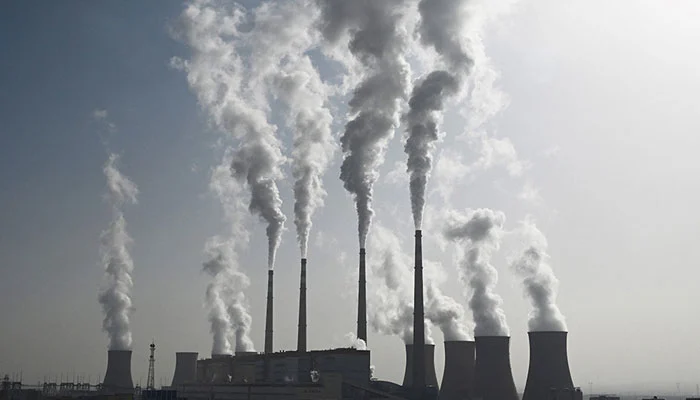Islamabad: The government is considering various strategies to introduce a Carbon Tax in the upcoming budget as an effort to decrease the demand for fossil fuels, which emit carbon.
In contrast to accepting the IMF’s request to impose an 18% General Sales Tax (GST) on POL products in addition to the Petroleum Development Levy (PDL), Pakistani officials have proposed implementing a Carbon Levy in the 2024-25 budget to reduce the consumption of POL products and other carbon-emitting items.
There are ongoing discussions about implementing a Carbon Tax on imported POL products and other fossil fuels. This tax may take the form of a carbon levy, which would enable the federal government to retain and utilize the entire revenue generated for their expenses, rather than allocating it to the Federal Divisible Pool under the NFC Award. High-ranking sources confirmed this information during a conversation on Wednesday.
The government, via the Finance Bill 2024-25, might suggest acquiring authority to impose a carbon levy between Rs20 and Rs30 per liter on fuels or a specific amount on coal. This move aims to increase the prices of fossil fuels, thereby decreasing demand for these products and ultimately protecting the clean environment.
A carbon tax, which represents the societal impact of carbon, is considered a crucial instrument to regulate carbon emissions. By increasing the cost of products that emit carbon, demand for these items decreases. Typically, this tax targets fossil fuels.
Certain nations have implemented a carbon tax, while debates continue in others and proponents advocate for a global version. However, governments tend to favor non-tax approaches for controlling carbon emissions. Amongst those who have adopted a carbon tax, there is significant variation in rates, and additional measures coexist. It’s reasonable to question why a universal carbon tax isn’t preferred over other emission-limiting policies and why additional policies are still necessary, even with a carbon tax in place.
In the recent discussions between Pakistan and the IMF during the second review under the $3 billion Standby Arrangement (SBA) program, the concept of implementing a Carbon Tax has been proposed. This idea may be taken into account for the budget planning of 2024-25.
The federal government appears focused on implementing actions related to taxes that do not contribute to the Federal Divisible Pool (FDP) of the National Finance Commission (NFC). This is because a significant portion, up to 60%, is distributed among provinces for taxes falling under the NFC. Consequently, the federal government aims to utilize levies in a way that the collected resources remain under its control, avoiding integration into the Federal Divisible Pool under the NFC Award.
Nonetheless, the International Monetary Fund (IMF) highlights in their technical assistance assessment that petroleum products have been exempt from Sales Tax since March 2022. It is essential to note that Sales Tax revenues are distributed among provinces under the National Finance Commission (NFC) Award, while the Petroleum Development Levy (PDL) remains with the federal government.
Despite an increase in the PDL rate, taxation on petroleum products has decreased since 2019. The overall taxation rate on petrol has been 29% of the sale price since then, with both PDL and Sales Tax contributing 14.5% each.
In September 2023, taxes account for 19.6% of the sales price. The International Monetary Fund (IMF) noted that the relatively low taxation of petrol is also evident in its sale price compared to other countries.
They provided an example showing that in selected neighboring countries and emerging economies, the average gasoline price at the pump in 2023 was $1.12 per liter, while in Pakistan, it was $0.97 per liter. Similarly, the retail price for diesel in 2023 was the same in Pakistan and certain comparator countries, averaging $1 per liter.


